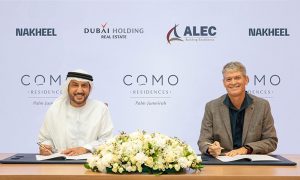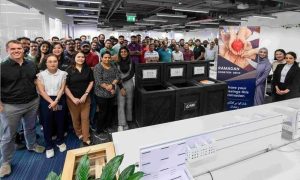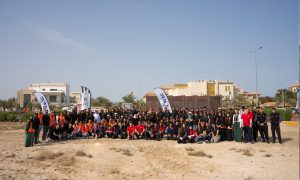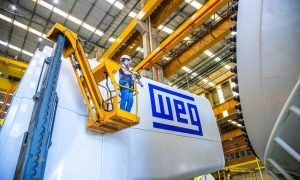Aabar’s 70% acquisition of Arabtec called off
Arabtec and Aabar Investments have called off their US $1.7 billion agreement for Aabar to take over Arabtec.
Arabtec and Aabar Investments have called off their US $1.7 billion agreement for Aabar to take over Arabtec, reported Reuters.
Although the announcement boosted Arabtecs shares, some analysts said the move deprives the Dubai builder of a major source of funding for its projects. “Arabtec will have to figure out how it is going to raise financing for some of its projects, mainly in Saudi Arabia. This is going to be a tough place to raise money,” Saud Masud, head of research and senior real estate analyst for the Middle East at UBS told Reuters.
“The stock may react positively in the short-term, now that they are not dependent on Aabar but in the medium-term this will be an issue,” he asserted. Arabtecs shares closed 2.3% higher at AED 2.71, having hit a three-month high of AED 2.83 in earlier trading.
The two firms, which issued identical statements, gave no reason for the cancellation of the deal, but analysts said Arabtec no longer needed it after Dubai issued a debt repayment plan, and that both firms likely disagreed over valuations. Officials at both companies could not be reached for comment, according to Reuters.
“The parties have agreed that they will continue to work together in good faith towards future cooperation and forming a strategic partnership in Abu Dhabi in the future,” the firms said in statements
to the Dubai and Abu Dhabi bourses. The deal, unveiled in January, had been for Aabar to take a 70%
stake in Arabtec.
Arabtec was among creditors to conglomerate Dubai World hit by the groups November announcement that it would delay debt repayment. Arabtec was also exposed to Nakheel. However, Dubais $9.5 billion rescue plan for state-owned Dubai World last month, which includes some immediate funding for property unit Nakheel to help pay its bills, has taken the pressure off, analysts said.
“The Dubai World agreement means Nakheel will be paying Arabtec in full,” Roy Cherry, an analyst at Shuaa Capital told Reuters. “It also implies that all government-related entities will follow suit
and over time pay back their dues to Arabtec in full,” he added.



















